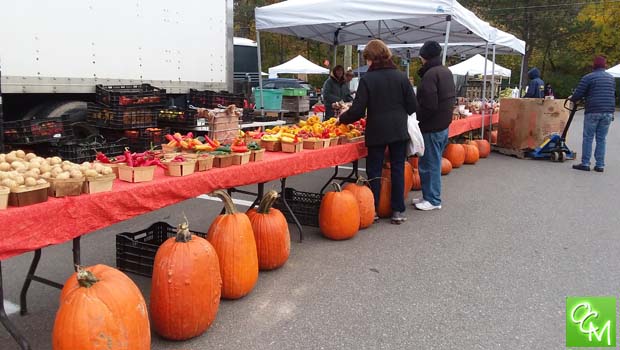Diet tips to reduce breast cancer risk courtesy of our interview with registered dietitian Elizabeth Ward in honor of Breast Cancer Awareness Month.
Breast cancer is the most common cancer among women in the U.S. Most everyone (if not herself) knows someone who has battled this disease. In honor of National Breast Cancer Awareness Month (October), I interviewed a dietitian to discuss what women can do to reduce their risk for getting breast cancer.
Here’s the Q&A session I had with registered dietitian Elizabeth Ward on including tips to reduce the risk of breast cancer:
Lisa LaGrou of Oakland County Moms – What lifestyle changes can a woman make to reduce breast cancer risk?
Elizabeth Ward – To decrease your risk of breast cancer, one of the best defenses is to lose weight and keep it off. And, also to exercise regularly. Now, it’s not enough to just diet, you need to diet smart. And I think this is where women can really improve.
Lisa LaGrou of Oakland County Moms – So, what foods should I incorporate into my diet to reduce breast cancer risk?
Elizabeth Ward – The new dietary guidelines state that you should cover half your plate with half fruits and vegetables. You should add some whole grain and then go for lean proteins like chicken or fish, or lean beef. Or, eggs which is one of my favorite lean proteins. And certainly Eggland’s Best make a lot of sense because they provide a bigger bang for your caloric buck. For 70 calories, you get two times the Vitamin D, two times the Omega 3, and ten times the Vitamin E of regular eggs, all for less cholesterol and saturated fat. Those are the foods you really want to concentrate on when you’re cutting calories.
Lisa LaGrou of Oakland County Moms – Are there any foods that have been proven to be harmful or cancer causing for example, processed foods, foods laden with preservatives, etc.?
Elizabeth Ward – I know you hear a lot about that in the media but there’s really no consensus among experts. As a registered dietician, what I tell people is that what we do have a sense of is that alcohol may actually play a role in increasing the risk for breast cancer. Really what the studies show is the more alcohol you drink, the greater the risk. Now, that could be because of family history, genes, we just don’t know yet. But, alcohol provides a lot of calories, so if you’re looking to slim down, that may be an area where you want to cut.
Lisa LaGrou of Oakland County Moms – What are some other tips for boosting the nutritional value of one’s diet?
Elizabeth Ward – Well I think concentrating on the most nutrient rich foods possible but also allowing for the fact that it’s ok to have some treats. It’s ok to have some chocolate and some chips. Eating healthy is not all about getting fun foods out of your life. Have a sense of humor about it but also balance what you’re eating with some physical activity. Research shows that about four hours of moderate intensity of physical activity will help ward off breast cancer. That comes out to be about 35 minutes a day. It’s a worthy investment. And, in this case, to help prevent breast cancer, getting the 35 minutes together is the better option. But don’t let that discourage you. If you have to break it down, and you have to do it in 10-15 minute blocks, just do it.
Lisa LaGrou of Oakland County Moms – How do Vitamin D and Choline support health against breast cancer?
Elizabeth Ward – Choline is one of the most essential nutrients that many people don’t know very much about. It actually has a dietary reference stating that you’re supposed to be getting it every single day. And studies show that women do not get enough choline. Eggs are one of the most concentrated sources of choline that are commonly consumed. And EB eggs have two times the amount of Vitamin D as regular eggs. So those two nutrients combined are really exciting because research shows that Choline and Vitamin D may help to prevent breast cancer. So it’s worth it to eat foods that are rich in both of these nutrients. When it comes to choline, there really are no supplements. You really have to get it from food. Choline is associated with high protein foods. Lean beef, chicken, eggs are all excellent sources of choline. As for Vitamin D, there are very few natural sources of Vitamin D and we’re facing a Vitamin D deficit in this country. Even if you consume the recommended three daily glasses of milk, or nutrient rich food, you may still need to supplement to bring it up to where the recommended amount is. It’s good to focus on a healthy diet, but in the case of something like Vitamin D, it may help to supplement as well.
OAKLAND COUNTY MOMS FAMILY HEALTH ARTICLES
For more info on tips to reduce breast cancer, you can check out Elizabeth Ward’s website.


